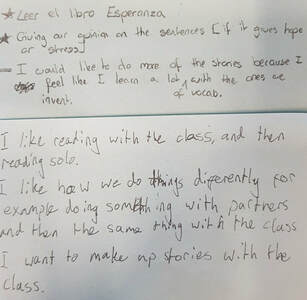Drill. Practise. Worksheet. Repeat.
The results will come and everyone is happy, right? The results often do come, at least for those willing to do the tedious practice and conjugation drills, but not everyone is happy. Perhaps the parents are happy when they see the ‘A’ on the results transcript, perhaps even the teacher is happy seeing those wonderful phrases we practised so many times reappear on the exam script, but no, not everyone is happy. The vast majority of students do not like rote learning, drills and practice. The research tells us students are ditching languages because, quite simply, they find it boring. In my own research, 11 years of collecting feedback forms at various stages in the year from students of all ages, backgrounds and contexts, I’m still at under 1% of responses listing grammar worksheets or practice drills as activities they felt helped their learning. They can serve a purpose when used very sparingly. However, in reality, far too many of us fall back on grammar exercises as our ‘go to – keep them quietly working’ activity when our students creativity and passion is dying a slow and painful death by powerpoint boredom.
The problem with focusing on achievement and results is that even when we appear to be ‘successful’, we still have far too many students (and parents) talking about hating French or ‘not being able to speak any Spanish’ even though they studied it for five years. Our subject is ‘language acquisition’ but what most students actually get is a linguistics class on the mechanics of language and grammar, sprinkled with some role-play and practice drills in case someone in the future should ask them any of the very precise questions in our textbooks. I remember going to Germany when I was 15 and had been learning German for three years… and to my shock and horror, even though I knew my lines, I had practised and drilled those role plays, the pesky Germans did not know theirs! Not one person asked me how to get to the post office or to list off all the items in my bedroom.
 Christmas card from an ex-student 2018
Christmas card from an ex-student 2018 Why teach with a focus on accuracy, form, grammar drills and practice when you get pretty much the same 'results', but with a huge increase in motivation, with a Comprehensible Input (CI) based approach?
I used to be a 'traditional' grammar, drill and practice language teacher for years. A pretty good one too. I was getting great 'results'. Most students liked my classes and were learning a lot. The 'academic' kids were excelling but others were simply not that interested no matter how hard I tried. I resigned myself to admitting "they just don't really like languages". Wrong. They just didn't find studying the mechanics of language as interesting as I did, like most other teenagers.
The switch to ‘Comprehensible Input’ teaching means I now reach all students. Even those who are not that 'into' languages, they still like Spanish and even after the timetable has forced them to drop it to pursue their love of Physics or Economics, they still come to me and speak Spanish, they still say they loved the class. This is what has changed. Grammar and drilling does 'work' for many kids, in terms of it helps them do very well on exams. But CI based classrooms grow a genuine love and interest for the language and the class and... here is the key, they also do really well on the exams.
 Student 1 minute summary feedback 2018
Student 1 minute summary feedback 2018 I'm not making this up either… the limited research around the motivational pull of CI and TPRS storytelling teaching is very strong. The huge volumes of data we have relating to retention and engagement in traditional grammar, drills and practice classroom is also very strong, but strong in the other direction. Students are not motivated by it. Students end up dropping the language and becoming those adults who say "I did German for five years but I was so bad at it, I can't remember a word".
Those “I’m so bad at languages” comments that we hear from other adults when we mention our job, those comments are on us. It is not the students’ fault that they are not as enthused by nerdy grammar explanations that most of us, as language teachers and linguists, love. We have control over how we teach in our own classrooms, we can stop the rot and change the way languages are taught in schools.
First step: throw out the stack of grammar worksheets, forget all the drills and practice and just talk to the students. Tell them about yourself, your weekend, your fears and passions, tell them stories and ask them questions, real questions about their dreams and desires, do it all in a comprehensible manner focusing on the meaning and not the grammar, and you are on your way to a new vision of ‘real success’. One where you spend less time laminating, and more time motivating.
‘Success’ is measured not by how many points a student scores on a test, or by how many grammatical errors there are. ‘Success’ is measured in smiles. This is real success.

 RSS Feed
RSS Feed